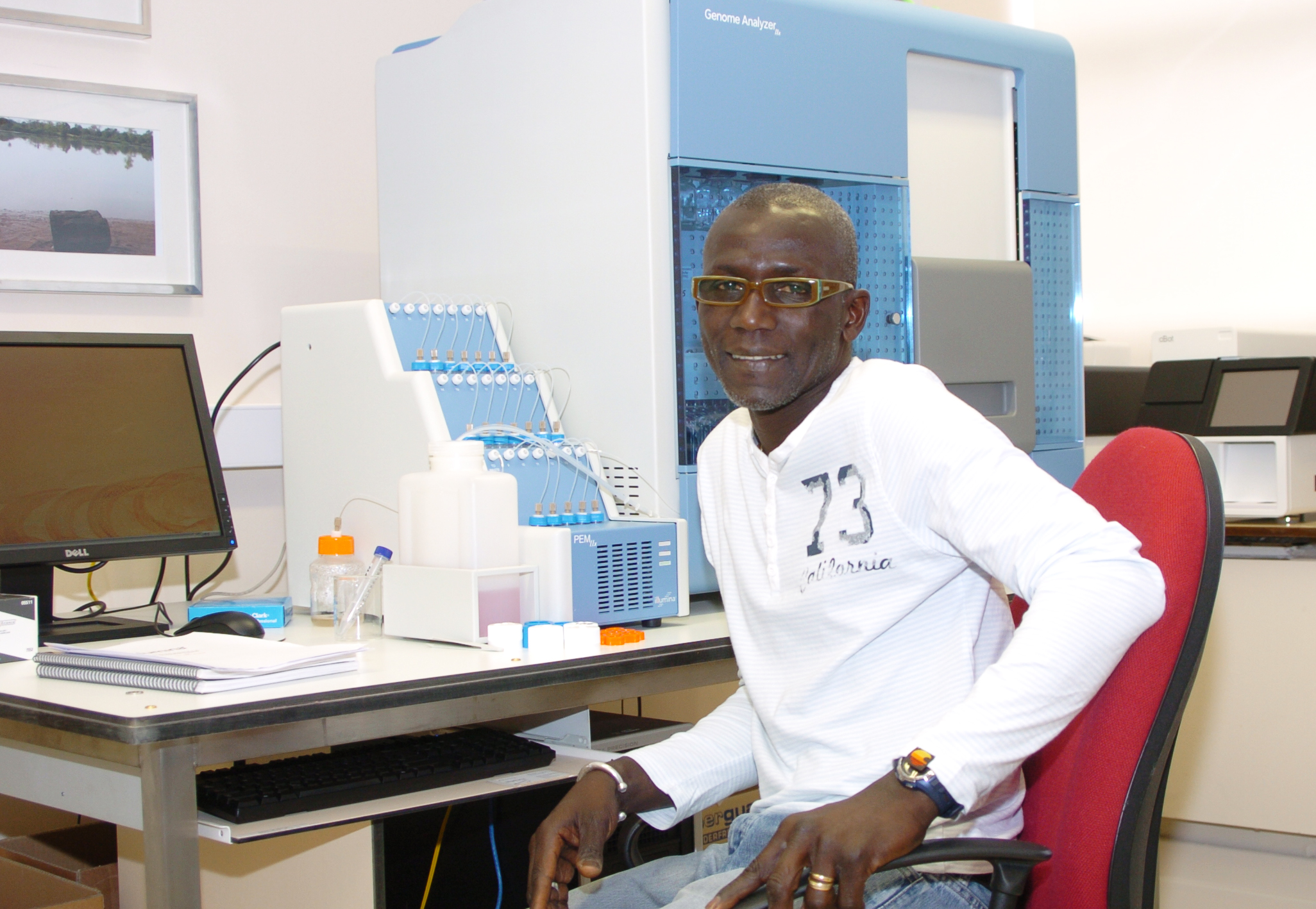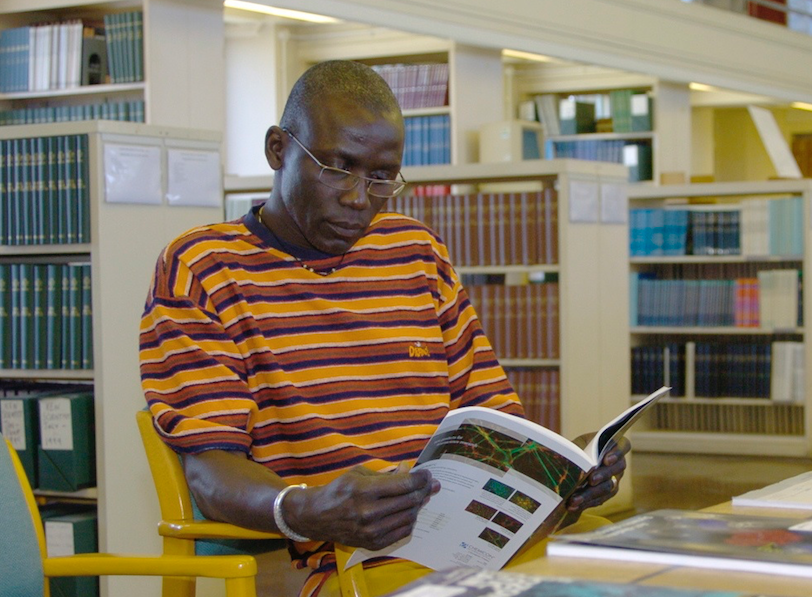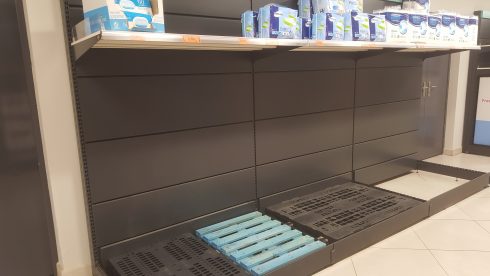AS coronavirus sweeps across Spain, claiming the lives of 87 people and infecting 3,003, we speak exclusively to Dr Abdul Karim Sesay, a geneticist currently working on COVID-19 for the British-run Medical Research Council in Africa.
Dr Sesay has been busy working on the national protocol in response to the unfolding health crisis, which has put numerous cities across the world on lockdown and led to more stringent travel restrictions.
Managing critical aspects of patient management and transmission prevention, this leading expert and frequent visitor to Spain answers the Olive Press’ most pressing questions about the outbreak.
To start, tell me about yourself and your work?
I am a scientist working on genomics, specialised in next generation sequencing in the UK and in Sub Saharan Africa. I have studied and worked in London for over 30 years and have a PhD and MSc from the University of Oxford.
What have you learnt about COVID-19?
It is a new strain of a virus belonging to a group that includes the SAR and MER which caused a recent outbreak in Asia and the Middle East. Humans can be infected with three other strains of the coronavirus, but bats carry over 45 different types that do not normally crossover to humans.
Based on what we know today and even as developments continue to emerge, how do you think the risk of coronavirus will increase in Spain?
People can make predictions based on other known respiratory diseases such as the flu to forecast what will happen in Spain and the rest of the world. These are what we are using as models and until we get through this outbreak and look at the seasonality of its behaviour, we can not be entirely sure on how it will behave.

What does it mean now that coronavirus has been named as a global pandemic?
It has now been classed as a pandemic, which means it will spread. What Spain must learn from other countries is that with early diagnosis, constant surveillance, treatment, contact tracing and movement restriction will all play a huge part in its containment. This means responsibility is needed from the Government, the health system and the population for this to work effectively.
There’s a lot of fear around COVID-19, even as the risks of flu are consistently underestimated. What does influenza and this specific coronavirus have in common, and how do they differ from one another?
We know a lot about influenza. We have vaccines that are updated regularly, we know how the virus behaves and how it’s transmitted as well as its genetics. We must remember that the coronavirus is new and extensive research is needed to fully understand it. The surveillance system and scientific knowledge established for the flu needs to be tapped into to effectively learn about COVID-19, and is extremely important in this context.
Are there any environmental factors that could heighten the spread of the coronavirus?
They are numerous. Dust, wind, an urbanisation with a large population in close proximity, hygiene, waste disposal, the strength of a health system, nutrition and food sources all play a role in any virus replicating. They also determine who gets infected and how you pass the infection on. We are living with more animals around us and we are moving into their environment. All the environmental factors are brought together with the danger of pathogens and bacteria crossing over from animals to humans.
Is heat really an ally to halt the spread of the virus?
There are two important things to consider. First, the virus is carried in a droplet which survives longer in a colder environment. Therefore, in warmer temperatures, the droplet is expected to dry up quicker, so transmission would be decreased. However, this is all uncertain as it is a new virus. Secondly, more people are likely to beat the virus as their immune system is stronger in warmer temperatures in comparison to winter.

In Spain, there is now a high demand in clinical face masks with reports that some pharmacies have completely sold out. Would it be fair to say that the hysteria is excessive and unwarranted?
The unknown and anything new with misinformation will always cause hysteria in people. We all want to live and for our love ones to live healthy. If you perceive there is a threat to this fabric you panic. In many places you can understand those who believe they can protect themselves with a face mask, stop shaking hands, buying antiseptic wipes and soap. The panic in buying toilet rolls is only illogical if you believe logic applies.
What advice would you give to the Spanish government to halt hysteria?
Education, communication and using experts to inform the population will help. Controlling misinformation should be a very important action for the Government, as well as visibility and transparencies in actions made to deal with the outbreak. Reassuring and building trust with the public should go hand in hand in any measures rolled out.

To what extent are you and your peers worried about the effect that this virus will have?
Experts will always be worried in the face of uncertainty. Global preparedness and the response to an outbreak is fundamental as our environment and lifestyle is always changing. People behave differently in a crisis even after intense training and our past actions cannot be predictive of future behaviour. Governments must be open to advice from experts and in some countries, this doesn’t appear to have been done. It is my personal opinion that we should have everything in place to prepare ourselves to ensure we do not fail. Otherwise once a country loses control, the consequences for its population will be catastrophic, as we can see already has happened in Iran and Italy.
If people are to prioritise making changes to their lifestyle, what would be your recommendations?
Everyone needs to be given the correct information and try as much as possible to use logical arguments with every piece of advice that is received. Staying calm and reducing your exposure, i.e. travel restriction, self quarantining if you suspect you have been exposed, early tests and diagnosis is a must. But we must not forget that the flu has already killed more people this winter alone than the coronavirus outbreak so far – that’s the important caveat with so much still unknown about this virus.
Many people are now concerned about travelling to Spain, should they be worried?
As previously said – staying calm and trying to use logical and informed arguments on the right and wrong reasons to travel is the most important process to undertake. If it’s not in areas where you are visiting and there is no lockdown in place, then you shouldn’t be fearful to go to Spain. This you can review constantly by following reliable sources of information and not news outlets based on prejudices that surface during every global crisis.

Click here to read more Spain News from The Olive Press.








